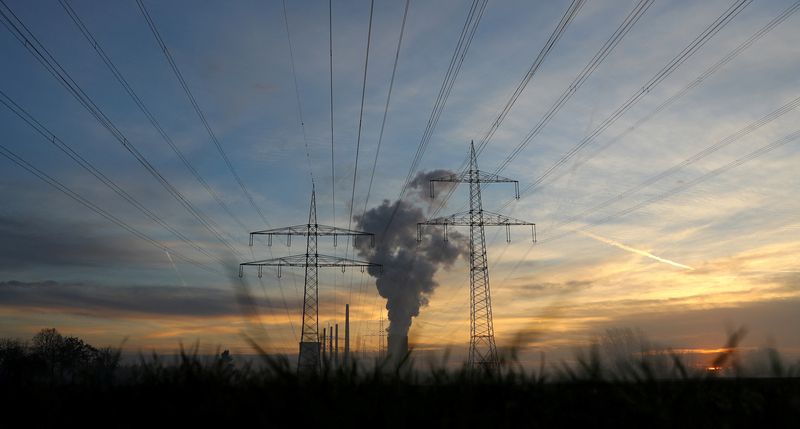(Reuters) - Pandemic-related disruption to global supply chains and the knock-on effects of Russia's war in Ukraine have combined to drive up prices of energy, commodities and basic necessities.
Below is a list of some of the actions taken by governments aimed at offering relief to hard-hit consumers and companies:
AMERICAS:
* Canada on Sept. 13 announced C$4.5 billion ($3.38 billion) package with a tax credit for families of low and modest incomes, and a one-time top-up to a benefit which helps low earners pay rent.
* Brazil is negotiating with Russia and Arab countries to boost its diesel supplies to lower fuel prices. Its oil giant Petrobras this year announced multiple petrol price cuts while in July, the government slashed fuel taxes and raised social welfare payments.
* The United States will offer debt relief to former students, while the $430 billion "Inflation Reduction Act" unveiled in August aims to cut prescription drug prices and introduce tax credits to encourage energy efficiency.
* In August, Mexican officials said inflation-combating subsidies have already cost some 575 billion pesos ($28.59 billion) this year.
* Chile in July announced a $1.2 billion aid plan including labour subsidies and one-time payments for those most affected.
EUROPE:
* The European Union plans to raise more than 140 billion euros ($139.99 billion) for inflation relief by skimming off revenues from low-cost electricity generators and making fossil fuel firms share windfall profits.
* Hungary extended price caps on fuels and basic foodstuff until the end of the year.
* France will cap household power and gas price increases at 15% next year. In August it passed a 20-billion-euro bill lifting pensions and some welfare payments.
* Norway agreed to offer businesses 3 billion Norwegian crowns ($292.21 million) in loans and subsidies. It is also helping households with electricity bills.
* Italy on Sept. 16 approved a new package worth some 14 billion euros.
* Germany may nationalize struggling gas importer Uniper. A 65-billion-euro relief package was also announced in September.
* Poland will spend over 30 billion zlotys ($6.37 billion) to curb power costs and support companies. It will also raise the minimum wage twice next year.
* The Czech Republic will cap electricity and gas prices next year.
* Britain will likely spend over 100 billion pounds ($113.86 billion) to cap consumer energy bills for two years and support companies.
* Portugal cut VAT on electricity and provided one-off payments for workers, families, and pensioners.
* Spain will slash VAT on gas to 5% from 21%, starting from October.
* Croatia will cap electricity prices from Oct. 1 until March.
* Finland and Sweden will offer liquidity guarantees to power companies.
* Denmark in August capped annual rent increases at 4% for the next two years, adding to previous measures.
ASIA:
* Thailand on Sept. 13 extended a diesel tax cut and energy subsidies and raised the minimum wage.
* At least 10 Indian states have announced a total of more than 1 trillion rupees ($12.54 billion) in support. On Sept. 8 the government restricted exports of rice, looking to boost supplies and calm local prices. It has also set up a panel to review pricing of locally produced gas.
* Japan will present another economic package in October, adding to a record minimum wage hike and a $103 billion relief bill unveiled in April.
* Indonesia's government on Sept.14 ordered regional heads to keep food inflation below 5%. In August, the government agreed to reallocate 24.17 trillion rupiah ($1.61 billion) from fuel subsidies to welfare spending.
* Malaysia expects to spend a record 77.3 billion ringgit ($17.00 billion) in subsidies and cash aid this year.
AFRICA AND MIDDLE EAST:
* Tunisia's government on Sept. 15 signed a deal with a major labour union to raise public sector pay and the minimum wage.
* Egypt on Aug. 30 announced a package to help clear a backlog of goods in ports and reduce commodity prices for Egyptian consumers.
* South Africa in late July announced a cut in the pump prices of fuel.
* Botswana in July cut VAT by 2% for a six-month period.
* Turkey in July increased its minimum wage by about 30%, adding to the 50% rise seen at the end of last year.
* Saudi Arabia and the United Arab Emirates in July raised their social welfare spending.
($1 = 1.3297 Canadian dollars)
($1 = 20.1141 Mexican pesos)
($1 = 1.0001 euros)
($1 = 10.2666 Norwegian crowns)
($1 = 4.7073 zlotys)
($1 = 0.8783 pounds)
($1 = 79.7310 Indian rupees)
($1 = 14,975.0000 rupiah)
($1 = 4.5480 ringgit)
